Chancellor reveals new energy discount for businesses
The Government has announced a new energy bills discount scheme (EBDS) for UK businesses, set to replace the current energy bills relief scheme (EBRS) once it ends in March.
The new support package will last from 1 April 2023 to 31 March 2024, giving organisations a discount on high wholesale prices instead of capping energy costs. This means that firms will benefit from support in proportion to their usage.
As with the current scheme, eligible organisations do not need to apply for the discount and will automatically receive reductions to their bills.
Businesses in industries with particularly high energy usage and trade intensity, such as manufacturing, will receive a “substantially higher” level of support.
According to Chancellor Jeremy Hunt, this reduced level of support will help bring down inflation while providing as much aid to businesses struggling with soaring energy bills as possible.
The Chancellor has also written to energy watchdog Ofgem to see if further action is needed to prevent energy companies from passing costs onto businesses.
Commenting on the downgrade of energy support, the Treasury said:
“The Government has been clear that such levels of this support, unprecedented in its nature and huge scale, were time-limited and intended as a bridge to allow businesses to adapt.”
Talk to us about your energy bills.
Inflation remains a key concern for business
Soaring inflation remained a key concern for businesses at the end of 2022, according to the latest quarterly economic survey from the British Chambers of Commerce (BCC).
Of the 5,600 firms surveyed – 92% of which are SMEs – 80% said that inflation was a growing worry for their business in Q4 of 2022. Nearly 38% expressed concerns about rising tax burdens, while 43% said interest rates impacted their business.
Business confidence stabilised at a low level following significant declines in Q3, with just 33% of respondents experiencing an increase in sales over the three months to November 2022, while 25% reported a decrease.
Meanwhile, firms in the retail and hospitality industry were more likely to report a decrease in sales than an increase.
Only 34% expected higher profits in 2023, while 36% anticipated a decline in profitability.
Responding to the survey’s findings, director general of the BCC, Shevaun Haviland, said:
“The outlook from businesses remains bleak. Now, more than ever, we need to create the right conditions for firms to invest and grow.
“The Government’s New Year’s resolution should be to put business support for SMEs at the heart of its agenda and get the UK back on the road to recovery.”
Contact us to discuss your business costs.
MPs call for urgent improvements to HMRC’s performance
MPs are demanding urgent improvements to HMRC’s “unacceptable service standards” after a parliamentary report discovered an “eye-watering” £42 billion is owed to HMRC from unpaid tax.
The report also highlighted a dramatic drop in HMRC staffing levels, with 6,000 employees being cut over the past five years.
Dame Meg Hillier, chair of the committee, said:
“The eye-watering £42 billion now owed to HMRC in unpaid taxes would have filled a lot of this year’s infamous public spending black hole.”
The public accounts committee report, meanwhile, reads:
“We do not consider that HMRC has the resources required to provide the level of service its customers need, or to maximise the tax revenues it collects, at a time when the public finances are under huge strain.”
The average speed of answering incoming calls to HMRC helplines was 12.22 minutes in 2021/22, almost double the length of waiting times in 2019/20, while there have even been reports of people on hold at HMRC for hours at a time.
Harriett Baldwin, Head of the Treasury Committee, wrote to HMRC chief executive Jim Harra, requesting an explanation for the long phone waits experienced by taxpayers.
In light of the growing number of complaints, Baldwin asked whether the disruption to the service was due to high levels of demand, too many HMRC staff members working from home, or whether the delays were connected to the IT issues experienced in early December 2022.
In the letter, Baldwin said:
“It is of serious concern that taxpayers are apparently unable to reach HMRC by telephone in the run-up to the 31 January online self-assessment deadline.”
The MP also asked what steps were being taken to resolve the reported concerns and whether HMRC would implement procedures to prevent similar issues in the future.
Speak to us about your self-assessment.
Research & development relief guidance under review
HMRC is inviting people to comment on draft guidance relating to the upcoming R&D tax credit relief reforms.
The reforms, expected to be implemented from 1 April 2023, will change how R&D works in practice and set out additional information requirements when applying for the relief.
Anyone wishing to comment can do so until 28 February via the Government website.
Initially announced in the Spring Budget 2021, the Government set out plans to review the R&D system to ensure that the UK remains a competitive location for research.
One of the main focuses of the R&D reforms is on qualifying expenditure in the UK and overseas.
For accounting periods beginning on or after 1 April 2023, expenditure on payments to subcontractors must be either UK-based or meet the overseas qualifying criteria for both SME R&D relief and the R&D expenditure credit.
Any companies wishing to claim R&D on overseas expenditure must ensure that the following three factors apply:
- the conditions necessary for the R&D are not present in the UK
- the correct conditions are present in the location where the work is carried out
- it would be wholly unreasonable to replicate the conditions in the UK.
There are also new reporting requirements, and first-time users of R&D relief will have to submit a claim notification form.
In order to apply, you will have to submit the following information:
- your unique tax reference (UTR) number – the same on your CT600
- contact details of the main R&D leader in the company
- contact details of any involved agent
- an agent reference number (if applicable)
- your accounting period start and end dates for the period where you carried out the R&D work.
The draft legislation for these measures was published for comment on 20 July 2022, and any final legislation will be taken forward in the Finance Bill later this year.
Talk to us about your R&D claims.





